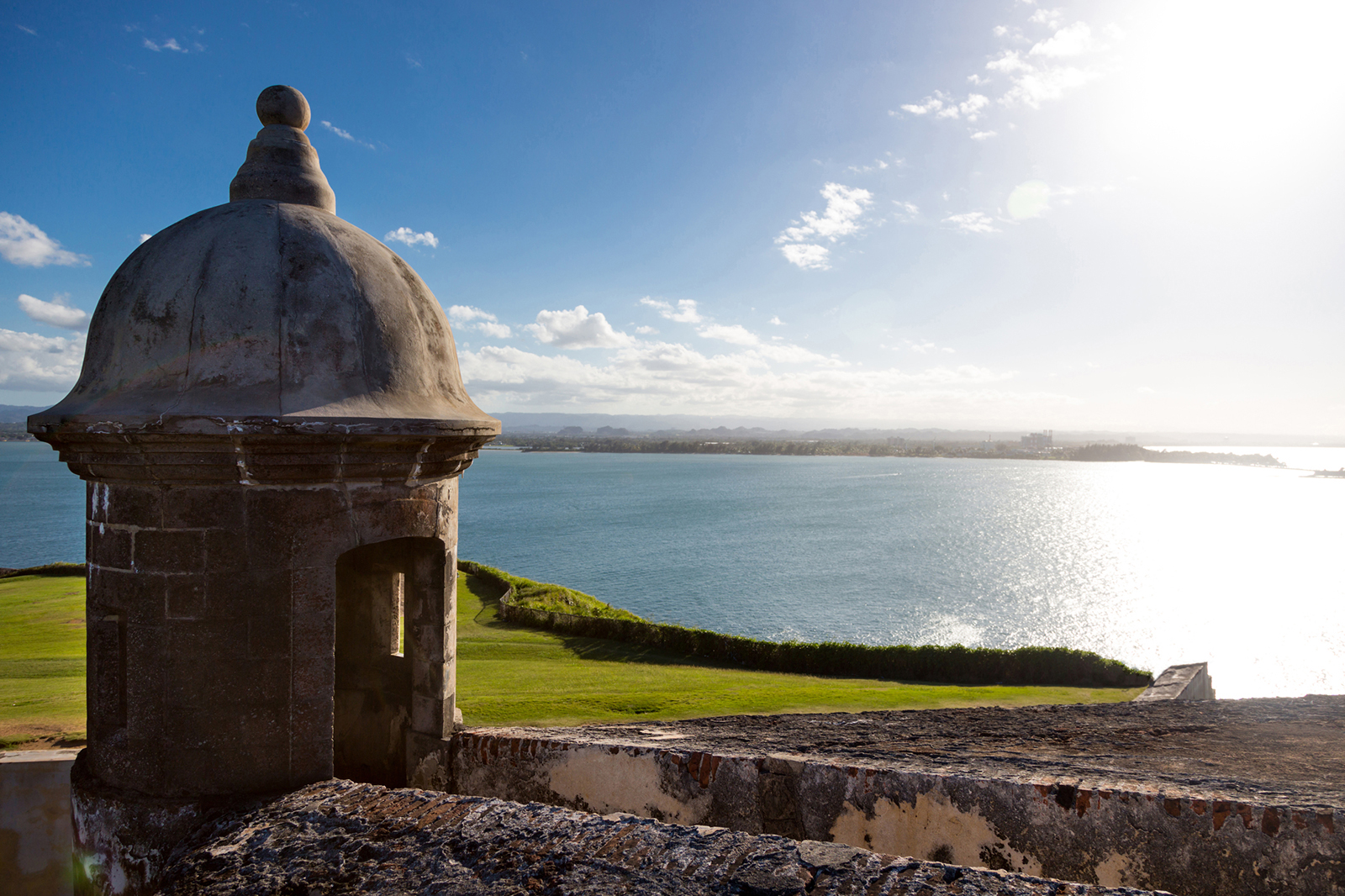Isla del encanto
Puerto Rico is Spanish for "rich port". Puerto Ricans often call the island Borinquén, a derivation of Borikén, its indigenous Taíno name, which means 'Land of the Valiant Lord'. The terms boricua and borincano derive from Borikén and Borinquen respectively, and are commonly used to identify someone of Puerto Rican heritage. The island is also popularly known in Spanish as "la isla del encanto", meaning the island of enchantment".Puerto Rico is an archipelago among the Greater Antilles located between the Dominican Republic and the U.S. Virgin Islands; it includes the eponymous main island and several smaller islands, such as Mona, Culebra, and Vieques. The capital and most populous city is San Juan. Puerto Rico has roughly 3.2 million residents, exceeding over 20 U.S. states. Spanish and English are the official languages of the executive branch of government, though Spanish predominates.
Originally populated by the indigenous Taíno people, Puerto Rico was
colonized by Spain following the arrival of Christopher Columbus in 1493.
It remained a Spanish possession for the next four centuries. Spanish rule
led to the displacement and assimilation of the native population, the
forced migration of African slaves, and settlement primarily from the
Canary Islands and Andalusia. By the late 19th century, a distinct Puerto
Rican identity began to emerge, centered around a fusion of indigenous,
African, and European elements. In 1898, following the Spanish–American
War, the United States acquired Puerto Rico. Puerto Ricans have been U.S.
citizens since 1917, and can move freely between the island and the US.
However, as residents of an unincorporated territory, American citizens in
Puerto Rico are disenfranchised at the national level, do not vote for the
president or vice president, and generally do not pay federal income tax.
As it is not a state, Puerto Rico does not have a vote in the U.S.
Congress, which governs it under the Puerto Rico Federal Relations Act of
1950. Puerto Rico is represented federally solely by one non-voting member
of the House called a Resident Commissioner. Congress approved a local
constitution in 1952, allowing puertorricans to elect a governor. Puerto
Rico's future political status has consistently been a matter of
significant debate.
Discover some of the island's best natural and historical sights in Puerto Rico as it is home to these beautiful destinations
-

Parque de las Cavernas del Río Camuy
This cave system is located between the municipalities of Camuy, Hatillo and Lares in northwestern Puerto Rico, but the main entrance to the park is located in Quebrada, Camuy. The caverns are part of a large network of natural limestone caves and underground waterways carved out by the third-largest underground river in the world, the Río Camuy (Camuy River). Over 10 miles of caverns, 220 caves and 17 entrances to the Camuy cave system have been mapped so far. This, however, is only a fraction of the entire system which many experts believe still holds another 800 caves. Only a small part of the complex is open to the public. -
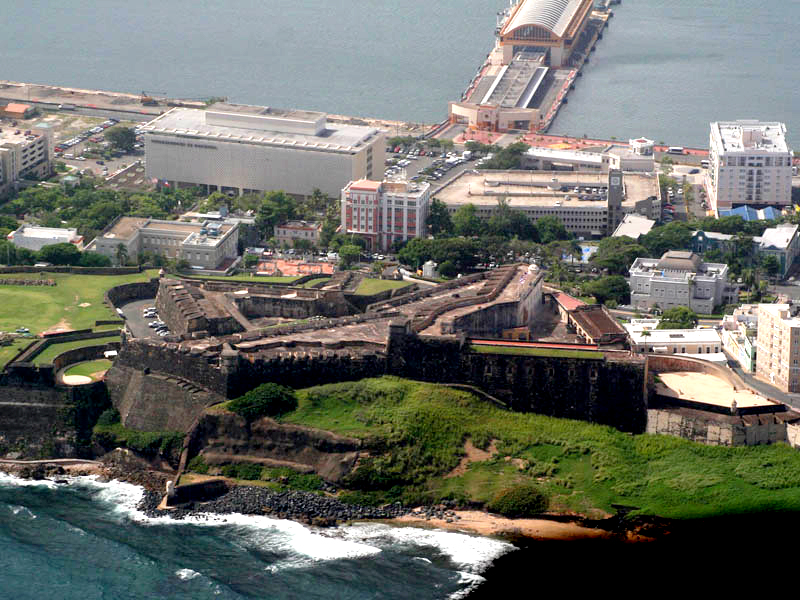
Castillo San Cristobal
Named after the saint patron of land travelers, Saint Christopher, Castillo San Cristóbal, is considered the largest fortress built in the Americas. It was built for the purpose of protecting the city of San Juan from attack by land from the east. It is a fortification with three levels and an extensive series of outer defenses and it took over 150 years to complete. The Irish born Tomás O'Daly was Chief Engineer and he was assisted by Juan Francisco Mestre. Following the principles of the French-influenced "Vauban-style fortress" (featuring irregular and triangular shaped bastions) and a "Defense in Depth" strategy, San Cristóbal was built with a deep dry moat and a series of tunnels. These tunnels protected soldiers from enemy fire and allowed the safe movement of troops, weapons and supplies. This enabled the defenders to engage the enemy before they reached the city gate if attacked by land. Gunpowder could be placed in other tunnels, called "countermines" to explode beneath the feet of an attacking enemy. Countermining tunnels served to destroy parts of the battlefield and also had the potential to block enemy access to the fortress through them.
-

Crash Boat Beach
The most popular beach in Aguadilla and one of the favorites on the west coast for residents of Puerto Rico. There's a little bit of everything at Crash Boat, swimming, snorkeling, scuba diving, fishing pier, great sunsets, dancing pelicans, cheap local food, and plenty of parking. During the winter months, the west end of the beach becomes a playground for surfers. Beach volleyball is a popular pastime for young locals during sunset. Along the pier, what looks like calm swimming water can become a dangerous scene depending on the current and weather conditions. The undercurrents can become like a whirlpool in some areas, making it very difficult for an average swimmer to get out safely. -
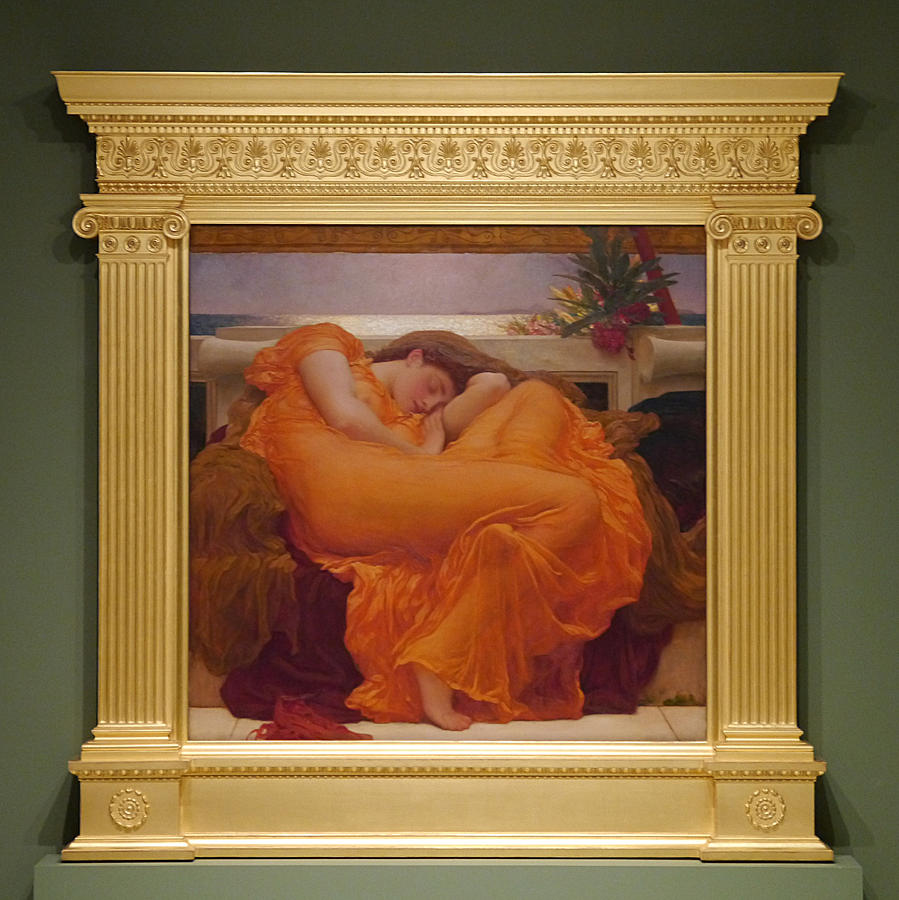
Museo de Arte de Ponce
The Museo de Arte de Ponce (Museum of Art in Ponce) is the finest art museum in Puerto Rico.The largest art museum in the Caribbean, it has also been called one of the best in the Americas. Some of the artists whose paintings and works are exhibited at the museum are Peter Paul Rubens, Lucas Cranach, Bartolomé Esteban Murillo, Eugène Delacroix, and Sir Edward Burne-Jones, among others. The main masterpiece of the museum is Flaming June, painted by Frederic Leighton. -
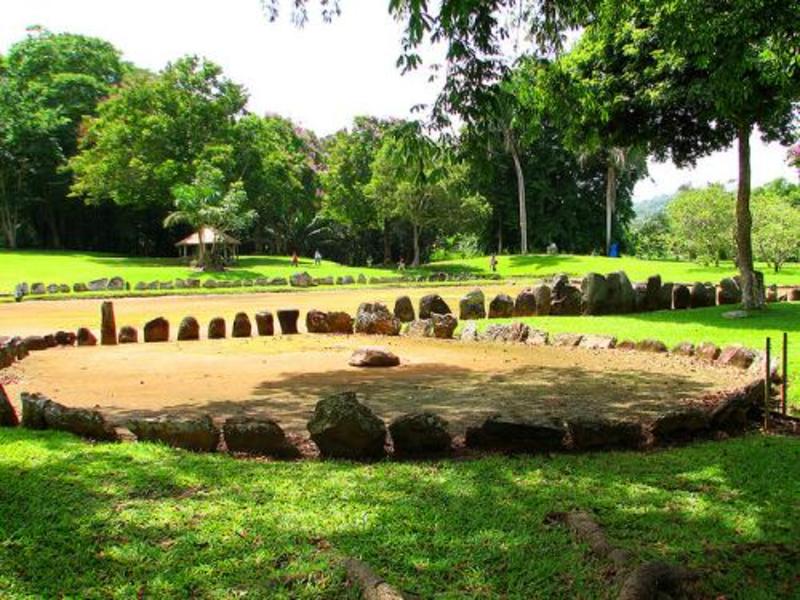
Parque Ceremonial Indigena de Caguana
The Caguana Indigenous Ceremonial Site is the Caribbean's most important Taíno archeological site, offering visitors a unique glimpse into the indigenous cultures that inhabited the region before the Spanish colonization. The Caguana site is located in Puerto Rico's mountainous town of Utuado, to the east of the Tanamá River. Administered and protected since 1955 by the Instituto de Cultura Puertorriqueña, visitors to the park are allowed to walk through the extensive site, which has 10 "bateys," stone monoliths, and countless petroglyphs. -
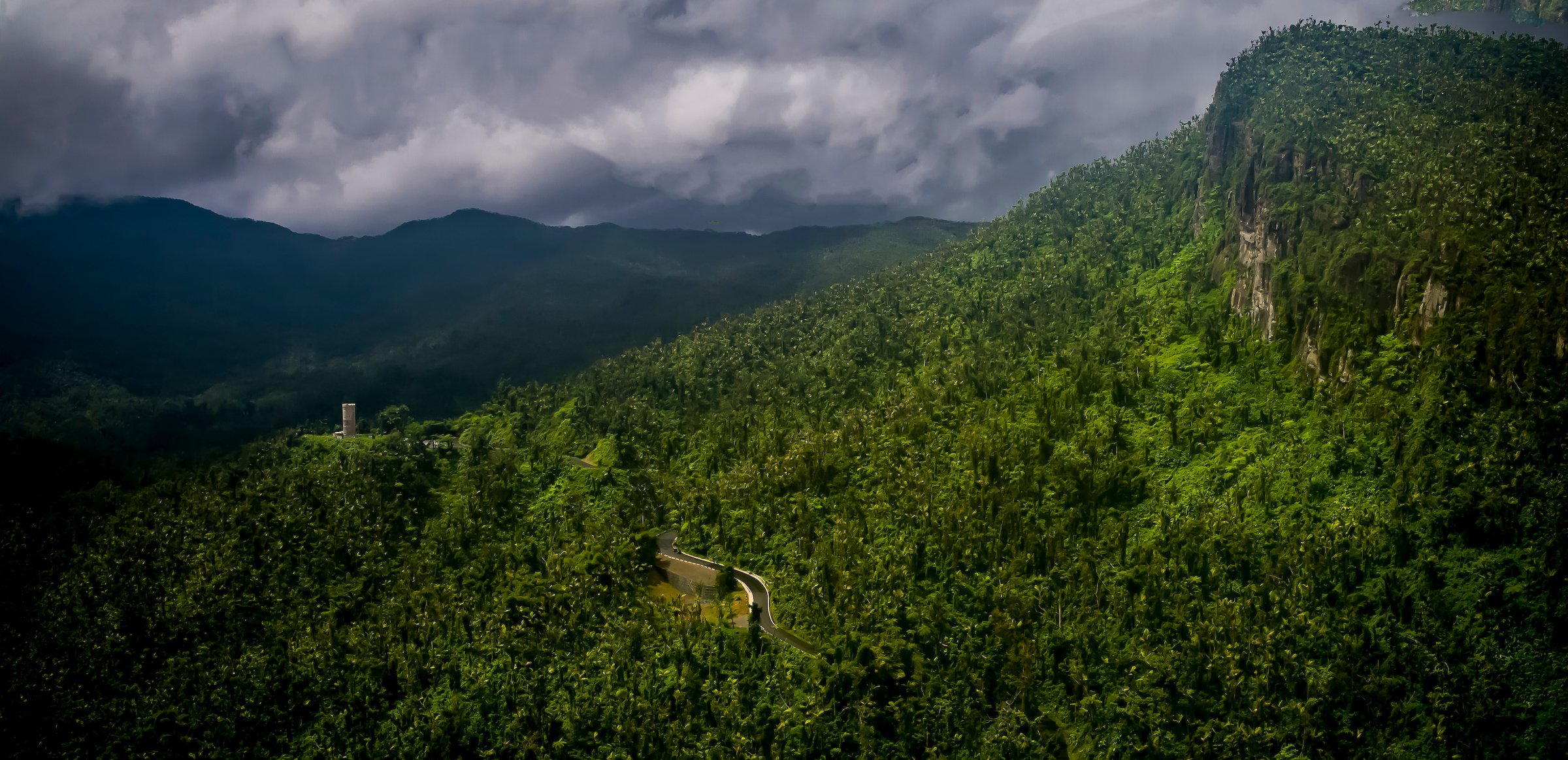
El Yunque National Rainforest
El Yunque is the only tropical rainforest in the U.S. National Forest Service located in Río Grande in Puerto Rico, and its name is a reference to Yuke, what the indigenous Taíno people defined as "white lands." With an average rainfall of 120 inches a year, El Yunque has a very diverse ecosystem, hosting hundreds of unique plant and animal species, including the Island's famous coquí frog.
